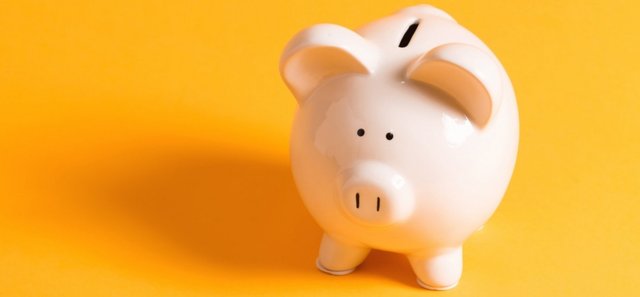All Truly Wealthy People Know This 1 Important Financial Secret

Digital Marketing Consultant and Account Manager Phil Segal speaks:
In an argument over money early in our marriage, I told my wife that she would always be poor. She took it very offensively - perhaps my delivery was also poor - but I was trying to explain that her habits would keep her poor.
Wealthy people understand that it isn't what you earn, it is what you keep.
Others have already commented on the sizable chunk the government (your "silent partner") skims off the top of your labor.
Once you get your grubby hands on your portion, you should have noticed by now that the rest of the world is trying to relieve you of the remaining portion. Whether it's unscrupulous sales people trying to earn their own paychecks, clever marketers, outright scam artists, or just plain products and services you don't really need, our consumer society is a buffet of pitfalls and opportunities to consume your earnings.
The reason wealthy people are frugal is because the high earners who weren't frugal likely don't have money anymore.
You've probably heard the statistics that most people who have a windfall such as an inheritance or winning the lottery are almost always broke again within a few years. They didn't understand the principles of wealth.
Sadly, most of us aren't taught those principles, so it's hard to cast blame. But the information is out there if you want it, especially in the Internet age.
In my own life, I have seen easily 5+ examples of people who I have known personally and intimately, who at some point in their lives earned income far above average, owned their own businesses, and/or could have been considered wealthy. Either before I met them or during the course of my time knowing them, they were broke again. Some of them borrowed money from me during that time, and one rented a room in my house.
Why? As far as I can tell, the one thing they all had in common is that they assumed their peak level of income would always continue or increase, and therefore they never saved or invested properly. In all cases, they were eventually wrong.
I started from flat broke, and in fact six figures in debt. In the same period of time that I witnessed those cases, I am out of debt and have begun to grow wealth. I am by NO means wealthy, but my trend has been steady up and to the right. The difference is that I have made a concerted effort to save as much as possible from my earnings, pay down debt, and learn and experiment with investing. I believe that, barring some unforeseen occurrence (life is full of them), I will end up wealthy, because I work hard, manage my money intelligently, and learn from my mistakes.
Rich Dad, Poor Dad (Robert Kiyosaki's famous book) was mostly a fluff piece for one core concept: poor people purchase obligations (debt), while wealthy people purchase assets (intrinsic value and/or income producing).
Wealthy people understand that most consumer spending is essentially converting hours of their life working into money, and then taking that money and trading it for things that you don't really need or want. Or in other cases, simply not understanding where you are being screwed due to inefficiencies.
You are trading your life for money, which makes you unhappy, and then you are trying to fill that hole in your heart with products or services to regain the happiness you could have already had - when you could just try to work less and be happier in the first place. But such is the insanity of consumer culture.
Everyone has emotional triggers, things they consume that make them happy; if you have the means, of course you should indulge a bit and live a little. But most things people waste money on don't make them that happy. Couldn't you buy a pound of coffee that gives you a couple of weeks of coffee for $10, rather than spending $5 per cup at Starbucks? Is the incremental value of a slightly nicer car worth an extra $100-200/month?
Once you realize that almost all modern consumer products are traps to take your hard-earned money, set by people who understand how to free themselves from the system and become wealthy off of your back...
Well, does it make sense to do anything but get a little smarter about how you spend the money for which you traded your time?
And once you've achieved wealth, does it make sense to do anything but make sure you never slide back into a place of hourly wages, near broke desperation, and all that comes with that life circumstance?
I'll leave you with one more thought: that a person is "wealthy" is just a label that you are applying from you current vantage point. As you start to grow wealth, your expenses and the scope of your problems tend to become larger as well.
"Mo' money, mo' problems" if you will.
So a wealthy person doesn't view themselves as "out of the fire" of life in the same way as a "working poor" person believes when looking up at them; they are simply playing a bigger game, with the same rules. But they understand those rules better than you do. And then many of those people will become truly wealthy at one point, which basically means your income producing assets support your desired lifestyle.
So the real question should be, given the almost certainty of remaining poor if you are not at least a bit frugal, why aren't more poor people frugal?
Hi! I am a robot. I just upvoted you! I found similar content that readers might be interested in:
https://www.quora.com/Why-are-some-wealthy-people-so-frugal